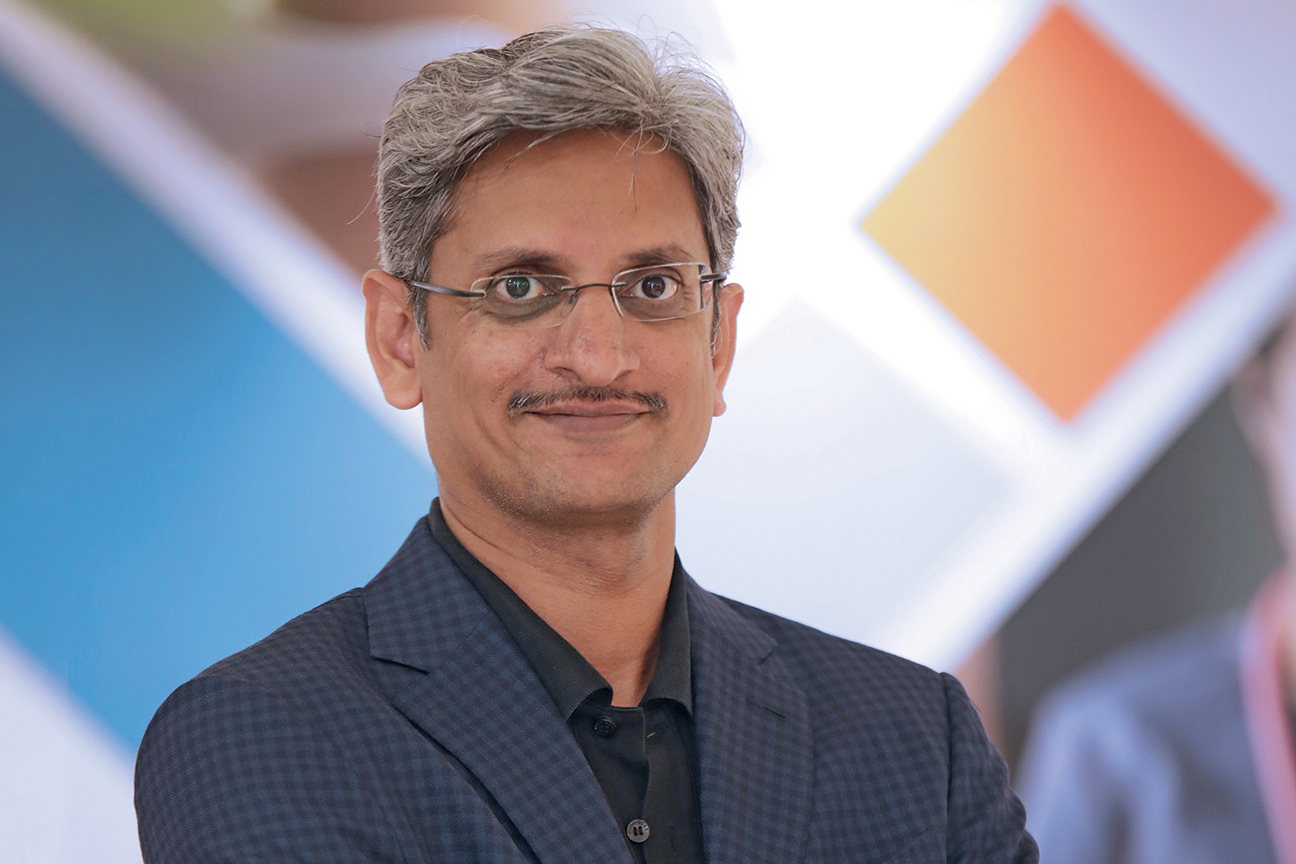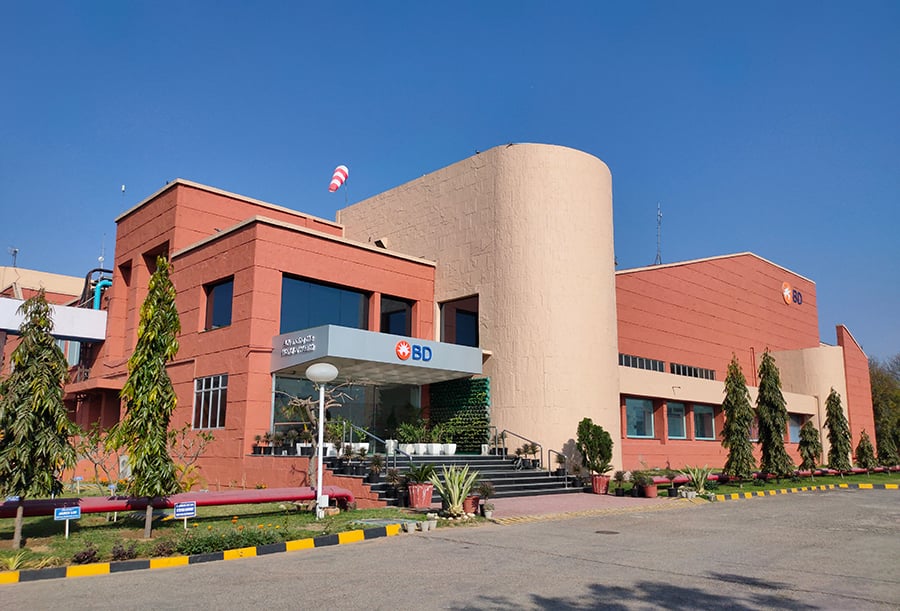When India’s government imposed a nationwide lockdown in March to curb the spread of COVID-19, Pavan Mocherla had a decision to make. Businesses across the country were sending their staff home and shutting down operations to meet the strict terms of the lockdown and keep their associates safe.

As Managing Director for Becton, Dickinson and Company (BD) in India, he wondered whether he should do the same. However, Pavan reasoned, BD is not like most businesses. As a manufacturer of medical devices such as disposable needles and syringes, BD could keep more people safe by staying open than by shutting down.
“We decided as a company that we would put patients first,” Pavan says. “We wanted to make sure that our business was operational so that our patients didn’t suffer. If a patient needed a product, we wanted to make sure that product or that technology was available.”
With support from the Indian government, BD’s Haryana factory and its delivery centres across the country have remained fully operational throughout the pandemic, keeping hospitals well stocked. This has all been achieved while keeping BD employees safe.
Associates with the ability to work from home were allowed to do so well before the quarantine measures were put in place. Then, during the lockdown, Pavan and his team adhered strictly to its policies. “Only our service engineers for our equipment were allowed to work on site,” Pavan explains.
BD operates in India through a wholly owned subsidiary, BD India Pvt Ltd. BD has a world-class manufacturing plant at Bawal, Haryana, that has the capacity to manufacture over a billion medical devices of Class II and IIa disposable needles and syringes, using a highly automated process as per global standards. The plant has also been recognised by the Haryana State Industrial Corporation.
“We worked with the government to obtain passes, and they continued to work and maintain equipment.” Moreover, when doctors performing emergency procedures needed support from BD staff to use certain devices or technologies, these associates underwent an approval process before being dispatched to the hospital to assist.
BD also continued to run webinars to provide healthcare associates with training on how to use its products to prevent infections. In one webinar, 1,500 people in India and the Middle East tuned in to learn how to safely collect and handle specimens during the pandemic. “We were all aware that the lockdown would have an impact,” Pavan says.

“There was going to be a hit, but the way our teams were geared and the culture that we have built ensured each one of us was aware of that. We used the downtime to make sure we were prepared, and then, when the lockdown was lifted, we were raring to go.”
Strong leadership
BD India’s ability to mobilise in a time of crisis was the culmination of the heavy investments Pavan has put into team building during his 17 years with the company, including his two years as Managing Director.
“It was always my dream growing up to be a general manager for an entire operation consisting of a plant, business units, marketing and sales,” he says. “I’ve been fascinated by finding ways to use the role of a general manager to have the greatest impact, and I’ve found that my passion is enabling high-performing teams and then seeing them deliver results.”
When Pavan took on his current role, BD’s Indian operation was underperforming relative to the rest of the company, which has a presence in more than 50 countries. It was especially important to his superiors to rectify this because aside from China, India is the most attractive emerging market in BD’s portfolio.
“They wanted me to go back and set things right so that we could rightfully be in a place where India needs to be in an emerging market,” he recalls. Pavan implemented a growth strategy that focuses on improving patient outcomes and making facilities more efficient.
“Hospitals improve their reputations as they solve patients’ problems well, and the patient outcome determines what they can pay. Therefore, that is where our value proposition is,” he says.
“By determining our pricing according to the benefits that accrue for big hospitals and patients as a result of our products and technologies, we can share in their success.”
Moreover, BD India further contributes to its clients’ success by eliminating costs from waste and inefficiency. “Hospitals that use our products save money and get procedures right,” Pavan says.
“There’s a value that a hospital or a research lab sees in working with us because that’s the total value that we give.”
People first
The positive results of Pavan’s leadership are evident, not just in financial terms but also in positive outcomes for patients. “We have been able to introduce technologies and services, like training and consulting, which elevate the practice by bringing in the right technology and the right behaviour, and this results in better outcomes for patients,” he says.
This success has resulted further in some internal successes, such as the rising proportion of BD products being made in India and a larger number of Indian employees successfully finding roles within the company throughout the world. But Pavan acknowledges that these successes are not the results of strategy alone.
In fact, they are even more dependent on having the right people to execute the strategy. “A lot of people get confused and try to get the strategy right first, as opposed to getting the people right first,” he says. “I’m a firm believer of people first, as in, if you get the right team in place and you have a vision, then the strategy can easily follow this.”
For Pavan, having the right people means ensuring that everyone on the team acknowledges the contributions of everyone else, regardless of where they stand in the hierarchy.
“Whether it’s the temp staff who work with us, contingent associates, our security staff, canteen suppliers, raw material vendors or anyone else in our supply chain, our values demand that we all treat each other with respect,” he says. “This is embedded in our DNA.”
Proudly supported by:



